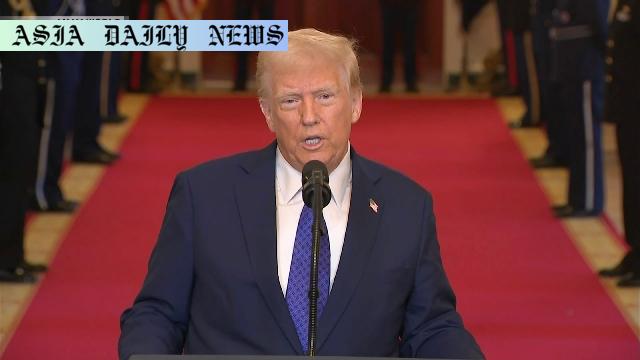Auto Tariffs: US government imposes 25-percent tariff on imported key auto components, citing national security concerns.
Auto tariffs of 25% imposed on imported engines and transmissions.
US cites Section 232 of the Trade Expansion Act for national security.
Tariffs raise concerns over increased production costs for automakers.
Japan’s auto parts exports to the US are significantly impacted.

US Government Imposes 25% Auto Tariffs
The United States, under the leadership of President Donald Trump, has introduced a 25-percent tariff on imported critical auto components such as engines and transmissions. This decision follows a similar move earlier in April, where a comparable tariff was applied to imported vehicles. The latest action, enacted under Section 232 of the Trade Expansion Act of 1962, alleges that foreign imports in the auto industry pose a threat to national security. The tariffs took effect promptly at 4:00 UTC, signaling intensified trade tensions with a focus on protecting domestic manufacturing capabilities. However, the repercussions extend globally, as automakers reliant on imported components brace for significant disruptions.
Reactions from Domestic and International Auto Manufacturers
The imposition of these tariffs has drawn criticism from major US automakers, who rely on a substantial share of imported parts to maintain their production lines. Industry leaders have voiced apprehension about the increased production costs that may arise due to these new tariffs. To alleviate domestic concerns, the Trump administration has promised to reimburse manufacturers for some expenses. A proposed reimbursement equivalent to 3.75 percent of the sticker price of domestically-made vehicles has been announced, though the long-term impacts remain uncertain. Outside the US, Japanese auto parts manufacturers, whose annual exports to the US account for about $8.5 billion, are also feeling the strain.
Implications for US-Japan Trade Relations
The new tariffs affect 5.8% of Japan’s total exports to the US, with key players warning that the policies could destabilize trade relations. While the primary goal of these tariffs may be to encourage local production and protect national security interests, they risk creating unintended disruption in international trade partnerships. Japanese manufacturers, who supply essential components to US companies, face the daunting task of navigating the new landscape. Stakeholders warn this could lead to strained diplomatic relations if solutions are not swiftly implemented.
Broader Economic and Political Implications
Trade policy experts have noted that invoking Section 232 might set precedents for applying tariffs under national security justifications. By targeting a significant sector like automobiles, the ripple effects may exacerbate tensions in global markets, further impacting consumer prices and economic stability. Additionally, this decision could prompt retaliatory trade measures from significant US trading partners, intensifying existing disputes. The ongoing uncertainty underscores the need for clarity in trade strategies while ensuring that manufacturers, both domestic and international, can adapt effectively.
Commentary
Assessing the Impacts of Auto Tariffs on Manufacturers
The US government’s imposition of a 25-percent tariff on imported auto parts carries profound implications for automakers, both domestic and international. While the justifications align with protecting national security and encouraging local production, the policy places a heavy financial burden on automakers reliant on global supply chains. Furthermore, concerns have been raised about rising consumer prices and operational challenges for factories that depend heavily on imported engines and transmissions.
Unintended Consequences for Global Trade
The fallout of these tariffs is likely to be far-reaching, especially for key players such as Japan, whose auto parts exports to the US are a major economic driver. Trade relationships could be strained, particularly if these tariffs are perceived as unfair or overly restrictive. With global supply chains so interwoven, disruptions like these risk significant economic dislocation for businesses and consumers alike. Policymakers would be prudent to evaluate the broader consequences of such moves and consider balancing security concerns with economic realities.
Need for a Balanced Approach
While the US government has acknowledged the challenges posed by these tariffs by proposing a reimbursement framework, many experts argue that more comprehensive solutions are needed. Collaborating with trade partners to address security and economic concerns jointly would mitigate potential discontent. Similarly, devising policies that encourage local production without penalizing foreign partners seems to be a more sustainable path forward.


